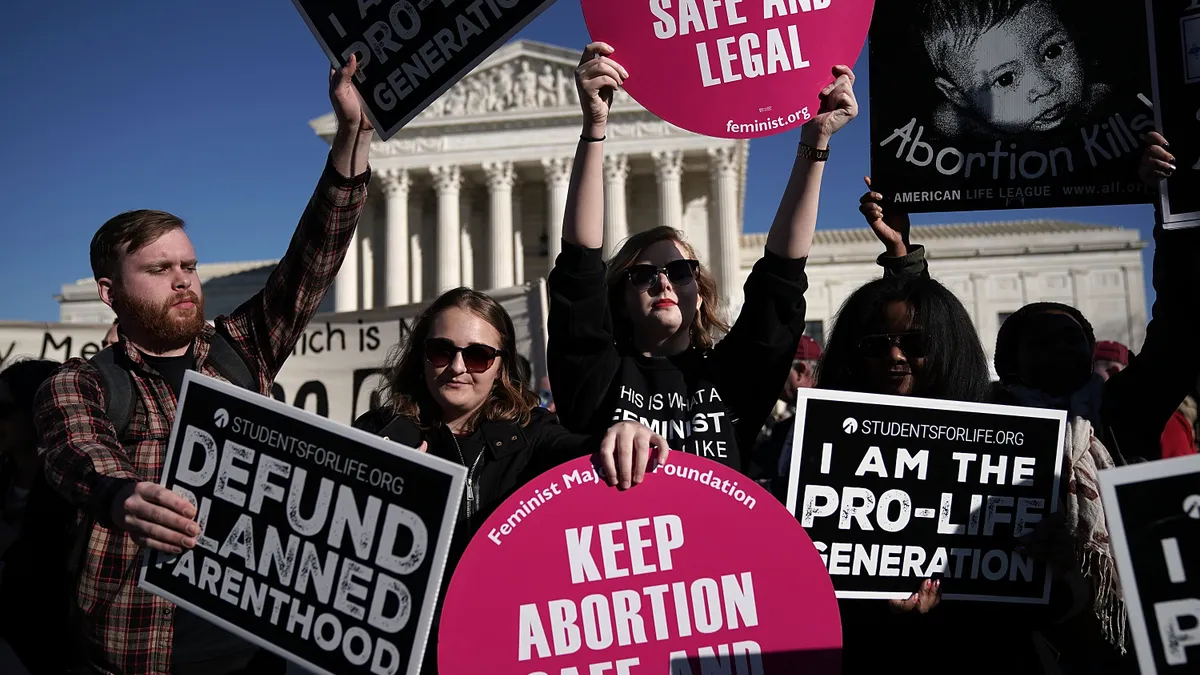Dive Brief:
- In a July 13 letter submitted to the U.S. Equal Employment Opportunity Commission, America First Legal — a conservative legal group led by several former members of the Trump administration — asked the agency to open an investigation into Dick’s Sporting Goods for “engaging in unlawful employment practices in violation of Title VII of the Civil Rights Act of 1964.”
- Per Title VII, as amended by the Pregnancy Discrimination Act of 1978, “discrimination with respect to compensation, terms, conditions, or privileges of employment because of childbirth,” is prohibited, the letter argued. “The Company’s decision to provide the ‘travel benefit’ — which is properly classified both as compensation and/or as a privilege of employment — to a pregnant woman who chooses to abort her child, while denying any equivalent compensation or benefit to a pregnant woman who chooses life, facially violates the statute.”
- In addition to the abortion-access benefit, America First Legal also took aim at the company’s DEI goals in the letter, arguing that “racial, color, national origin, and sex-based ‘balancing’ in hiring, training, compensation, and promotion is patently illegal,” even if well-intentioned.
Dive Insight:
As companies step forward to offer abortion-access benefits in the wake of the Supreme Court’s Dobbs v. Jackson Women’s Health Organization ruling, attorneys who deal with employee benefits have predicted litigation from anti-abortion groups.
Some lawmakers have already moved to challenge companies’ abortion-access moves; in May, a group of Texas state representatives sent an open letter to the CEO of Lyft, announcing they would introduce legislation to bar corporations from doing business in Texas “if they pay for elective abortions or reimburse abortion-related expenses,” among other steps.
According to the U.S. Equal Employment Opportunity Commission, the Pregnancy Discrimination Act protects people from being fired for having an abortion or contemplating having an abortion. It also protects workers from adverse consequences for not having an abortion.
A May blog post from law firm Babst Callard suggested that employers review their policies for pregnant workers. If the then-pending decision came down as expected, they noted, “employers with multi-state operations should monitor their policies to ensure that pregnant employees traveling to another state to obtain an abortion are treated no differently than employees traveling out-of-state for any nonpregnancy-related reason.”
As people adjust to the post-Roe landscape, employers are likely to see more legal challenges using existing legislation — and potentially more state laws that bar companies from action.














